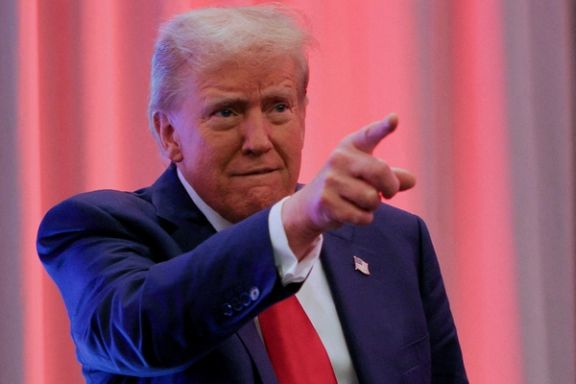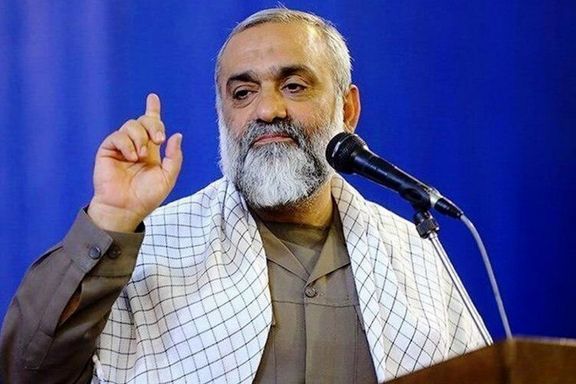IRGC officials threaten Trump over Soleimani killing

Iran’s top military officials have threatened US President-elect Donald Trump, vowing consequences on the fifth anniversary of the killing of the former IRGC Quds Force commander.

Iran’s top military officials have threatened US President-elect Donald Trump, vowing consequences on the fifth anniversary of the killing of the former IRGC Quds Force commander.
Qasem Soleimani was killed in a US drone strike near Baghdad International Airport in January 2020, a move Trump openly acknowledged ordering.
Brigadier General Iraj Masjedi, Deputy Coordinator of the Quds Force, denounced the operation, which also claimed the life of Iraqi militia leader Abu Mahdi al-Muhandis, as a violation of international law.
“In my opinion, Trump has rendered the greatest service to the terrorist movement in the world, and he must pay for this pure blood,” Masjedi said on Wednesday on the death anniversary of Soleimani. He questioned the legal and moral grounds of the assassination, calling Soleimani “the main agent in the fight against terrorists.”
The US justified the strike by saying Soleimani was planning imminent attacks on American interests in the region. However, his death escalated tensions between Washington and Tehran, leading to Iranian missile strikes on US military bases in Iraq.
“America must leave the region”
Brigadier General Mohammadreza Naqdi, Deputy Coordinator of the IRGC, also called for the expulsion of US forces from the Middle East, describing the Ayn al-Asad missile strike in 2020 as a decisive statement of intent.

“The world understood how powerful the Islamic Republic is and how weakened America has become,” Naqdi said during an appearance on Iranian state television. However, he added, “America has not yet received its full answer.”
The Ayn al-Asad missile strike occurred on January 8, 2020, as a direct retaliation by Iran for Soleimani's killing. The Islamic Revolutionary Guard Corps (IRGC) launched over a dozen ballistic missiles targeting the airbase in Iraq, which housed US and coalition forces. Another strike targeted a base near Erbil. This marked the first direct Iranian attack on US forces in decades and was one of the most significant escalations in US-Iran tensions.
The strike resulted in no immediate fatalities among US personnel, reportedly due to early warnings and evacuations.
Iran; however, portrayed the attack as a demonstration of its military capability and resolve.
Naqdi also defended Iran’s extensive role in the Syrian conflict, where Soleimani played a pivotal part in mobilizing Shi’a militias to support President Bashar al-Assad.
“Our presence in Syria was the most rational decision, as we sought to remove a significant threat to the Islamic Ummah,” Naqdi added, referring to Iran’s fight against ISIS.
Brigadier General Asghar Arabpour from Isfahan province also urged Iranian leaders to intensify efforts to hold Trump accountable.
“Addressing this case and Trump’s crimes requires greater seriousness from our country’s officials,” Arabpour said in an interview with ISNA.
He also criticized the broader US foreign policy under both Trump and President Joe Biden, arguing that American administrations prioritize Israeli security at the expense of Middle Eastern stability.
Five years after Soleimani’s targeted killing, Iran officials occasionally speak of revenge, keeping his death a cornerstone of their rhetoric against the United States.